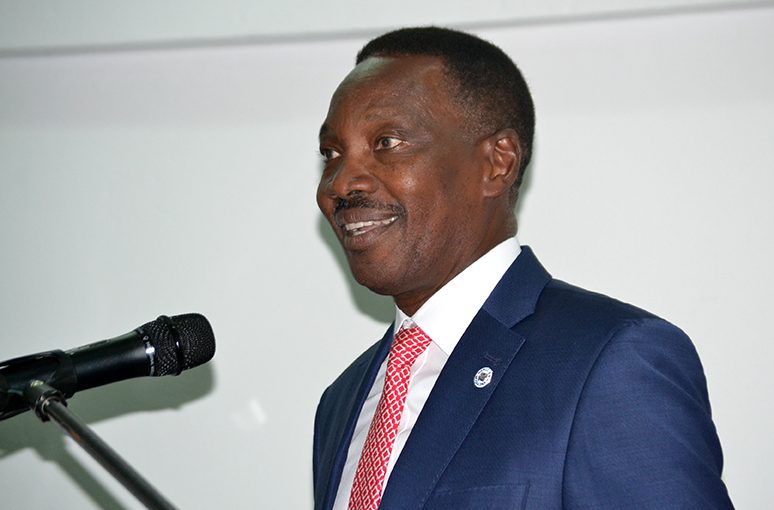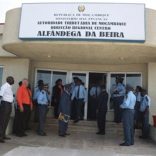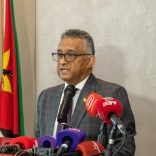Would a free trade agreement with the US be of interest to Mozambique?
Mozambique: Central bank chief warns of ‘high’ debt, lack of funding for reforms

Photo: Universidade Politécnica - A Politécnica / Facebook
The governor of the Bank of Mozambique, Rogério Zandamela, said that the country has accumulated a “high” public debt while not having saved “enough” to deal with the impacts of crises and to implement reforms.
“The chronic and structural deficits that characterise the Mozambican economy make the management of monetary policy even more challenging, in a context in which the country has accumulated a high debt and at the same time has not saved enough to cushion the impact of shocks, which are increasingly frequent and intense,” said the governor.
Zandamela was giving the inaugural lecture of the PhD programme in Development Studies at the Polytechnic University in Maputo on Wednesday, on the subject of “The Challenges of Monetary Policy in a Context of Crisis Management”.
The central bank governor added that Mozambique “is implementing reforms with little funding” – namely the application of the Single Salary Table (TSU) for public employees, which has been strongly criticised by various sectors within the civil service.
“The ability to implement reforms in a sustainable way depends on abundant resources to sustain this growth,” he said. “People keep asking us when such reforms are coming and they’re already tired. With money, the benefits would be easily visible.”
The International Monetary Fund said on 14 July that Mozambique’s government should “reduce the wage bill” to more in line with countries in the region, so that it can invest in priority areas, such as combating food insecurity and poverty.
“On the expenditure side, reducing the wage bill in line with regional peers will help create fiscal space for high-priority spending,” the Fund’s deputy executive director, Bo Li, was quoted as saying in a communiqué released in July on the final approval of the review of the Extended Credit Facility (ECF) for Mozambique. “Further strengthening the social safety net remains important to address food insecurity and elevated poverty.”
The announcement of the IMF’s approval of this review of the ECF was made on 6 July. It guaranteed a disbursement of $60.6 million (€54 million) to Mozambique, as was then confirmed in the institution’s communiqué.
In the note accompanying the announcement of the approval of the second revision of the programme approved in May 2022, which brings the total amount already received by Mozambique to $212.09 million (€194 million) out of a total of $456 million (€418 million), the IMF says that it allowed two criteria to be overlooked: the primary budget balance at the end of last year and the accumulation of external debts by the public sector.
In the statement released, the IMF’s deputy managing director recognises: “Economic recovery in Mozambique is strengthening, supported by the liquified natural gas (LNG) projects and rebound in various sectors.”
He adds that the authorities “are undertaking corrective measures to ensure fiscal discipline in 2023 and continued fiscal consolidation efforts are also warranted over the medium term.”
In its macroeconomic forecasts for this year, the IMF predicts an acceleration in the growth of Mozambique’s gross domestic product to 7% this year from 4.2% last, anticipating that by the end of the year inflation will have fallen from 10.3% to 6.7%, the same as in 2021, but still almost double the rate seen in the previous two years.
The debt-to-GDP ratio is expected to continue its downward trajectory, reaching 89.7% at the end of this year, down from last year’s 95.5%.













Leave a Reply
Be the First to Comment!
You must be logged in to post a comment.
You must be logged in to post a comment.